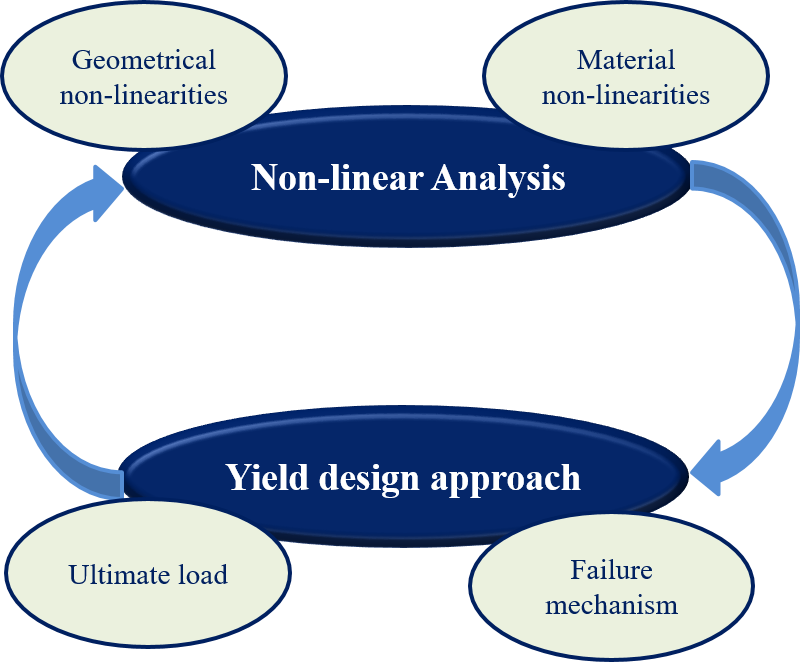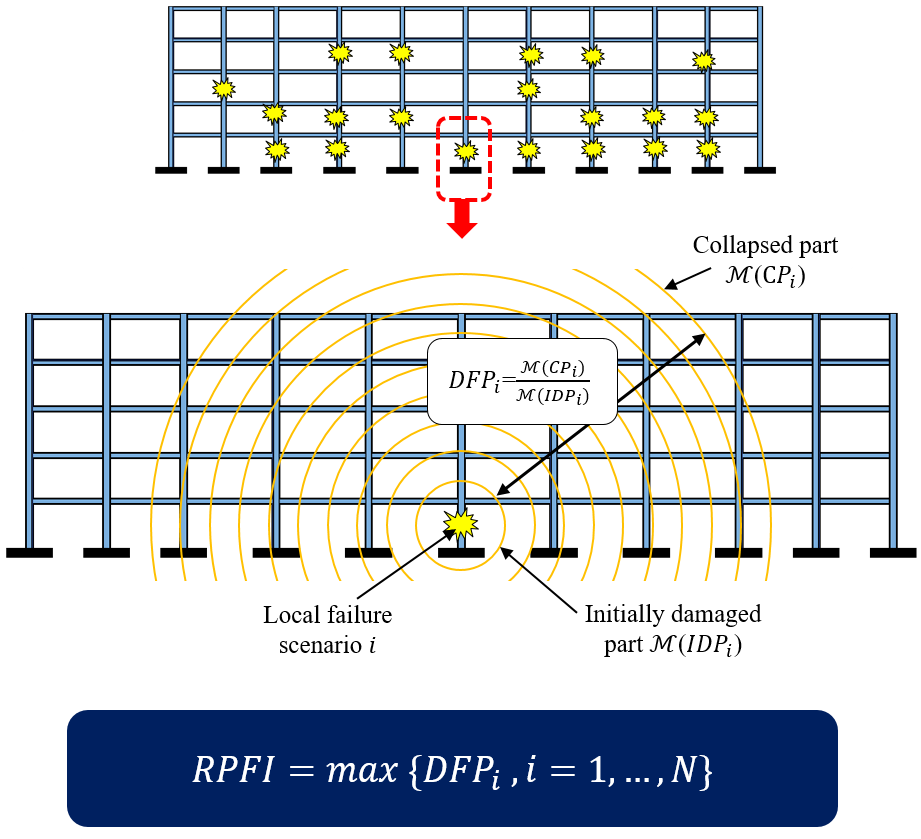Structural robustness
Modern design codes recommend ensuring an appropriate level of robustness to prevent from disproportionate collapse under an exceptional event. One of the major difficulties is to quantify the concept of structural robustness when checking the structural safety under exceptional situations. In this respect, the Eurocodes define the structural robustness as “the ability of a structure to withstand events like fire, explosions, impact or the consequences of human error, without being damaged to an extent disproportionate to the original cause”. To meet such requirements, robustness indicators are essential to assess the capacity of the structure to withstand events, estimate the safety against disproportionate collapse, and finally be used as a decision support for design choices. Several robustness metrics have been recently proposed in the literature. However, despite developments in this field, these methods are still not fully used in engineering practice to effectively assess structural robustness.
The main objective of these research activities is to propose an approach to quantify the structural robustness. Progressive collapse is modelled based on an iterative coupling between the yield design approach and a non-linear analysis.
PhD subject "Development of a structural assessment method for existing engineering structures - application to reinforced and prestressed concrete bridges" of Midula Alam
My thesis focuses on the structural assessment of reinforced and prestressed concrete road bridges, with particular emphasis on short-span structures. In the absence of precise standards, my aim is to propose practical approaches to engineers to facilitate the assessment of existing structures. My approach integrates the specific characteristics of structures, the potential presence of structural degradations and the evolution of resistance over time, all within a framework of semi-probabilistic structural assessment methods. The aim of this research is to guarantee the durability and safety of our road infrastructures, while simplifying the work of professionals in the sector.
PhD subject "Semi-probabilistic assessment of existing urban structures to climate change" de Lorenzo Casti
My research project is named “Semi-probabilistic assessment of existing urban structures to climate change”. It aims to study and propose suitable methodologies for civil engineering practitioners to assess the performance of existing structures considering the impact of climate change. Eventually, the aim is to contribute to the sustainable development of climate-resilient civil structures and infrastructure facilities and the welfare of society.
References
El Hajj Diab, M. 2019. ANALYSE DE LA ROBUSTESSE STRUCTURALE - Caractérisation des actions accidentelles et/ou exceptionnelles et de leurs effets sur les structures. Thèse de l'Université Paris-Est. Soutenue le 24 octobre 2019.
El Hajj Diab, M., Orcesi, A., Desprez, C., Bleyer, J., 2019. An embedded yield design approach within anon-linear analysis for structural modeling of progressive collapse. Presented at the RILEM spring convention and sustainable materials, systems and structures conference, Rovinj, Croatia.
El Hajj Diab, M., Orcesi, A., Desprez, C., Bleyer, J., 2019. A scenario-based procedure for structural robustness assessment. Presented at the IABSE symposium 2019 Guimarães, towards a resilient built environment - risk and asset management, Guimãraes, Portugal.











